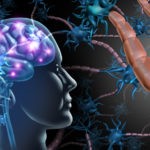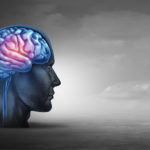The Symptoms of Early-Onset Alzheimer’s Disease

Many people face cognitive challenges as they age, such as memory loss. Some suffer from dementia or Alzheimer’s disease, and some even have early-onset Alzheimer’s. Considerable’s recent article entitled “7 surprising early signs of Alzheimer’s” provides us with some signs of early-onset Alzheimer’s disease.
Theft or other law-breaking. Any behavioral change as people age is of concern, but this can be a sign of Frontotemporal Dementia (FTD), another progressively damaging, age-related brain disorder. FTD usually hits adults aged 45-65. People’s executive function—their ability to make decisions—can be impacted by FTD, which may explain why they become unable to discern right from wrong. I have had clients in the past discover this condition after an arrest or fine lead to a medical exam.
Frequent falls. A study of 125 older adults asked them to record how frequently in an eight-month period that they fell or tripped. Researchers examined the brain scans of those who fell most frequently and saw a correlation between falls and early-onset Alzheimer’s Disease.
Forgetting an object’s function. We all forget where we put the keys. However, if you can’t remember what a key is for, or where dirty dishes are supposed to go, then it may be the first signs of Alzheimer’s Disease or dementia.
Inappropriate diet. Prior to the onset of Alzheimer’s, patients typically to eat more (roughly 500 calories more a day) than their aging counterparts but they still tend to lose weight. Doctors think this is a metabolic change. Some elderly actually eat inanimate objects prior to their diagnosis, but researchers don’t know the reason. Because Alzheimer’s and dementia affect the brain’s memory, it may be because their brain receives hunger signals but is unable to discern how to react to them. Some patients eat paper or other inedible objects.
Inability to recognize sarcasm. If you fail to recognize sarcasm or take it very literally and seriously, it may be a sign of atrophy in your brain. A study at the University of California – San Francisco found that Alzheimer’s patients and those with Frontotemporal Disease were among those who couldn’t recognize sarcasm in face-to-face encounters. The brain’s posterior hippocampus is impacted, which is where short-term memory is stored and where a person sorts out such things, like sarcasm.
Depression. If someone has never suffered from clinical depression but develops it after age 50, it could be an early sign of Alzheimer’s. It doesn’t mean if you’re diagnosed with depression in older age that you will develop Alzheimer’s or other cognitive decline. However, get treatment soon because some researchers believe that hormones released in the depressed brain may damage certain areas of it, leading to the development of Alzheimer’s or other dementia.
Unfocused Staring. Alzheimer’s Disease is a change in cognitive and executive functioning in the brain. This means that your ability to recall facts, memories and information is compromised, as well as the ability to make decisions. The brain becomes unfocused and staring in a detached way may be an early sign of so-called “tangles” in your brain.
If you are interest in this topic, I also wrote a blog on early onset dementia more generally which you can find here. https://galligan-law.com/what-do-we-know-about-early-onset-dementia/
These symptoms may be signs of early-onset Alzheimer’s Disease, or they may be the signs of other underlying issues. If you or any of your loved ones have any of these signs, consult your doctor. This may be a sign of something else but talk to your doctor to be safe.
Reference: Considerable (May 12, 2020) “7 surprising early signs of Alzheimer’s”
